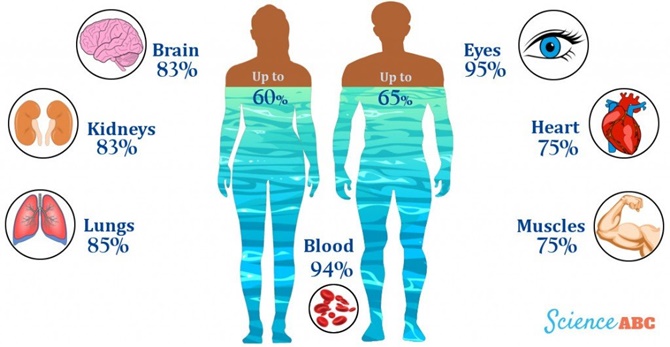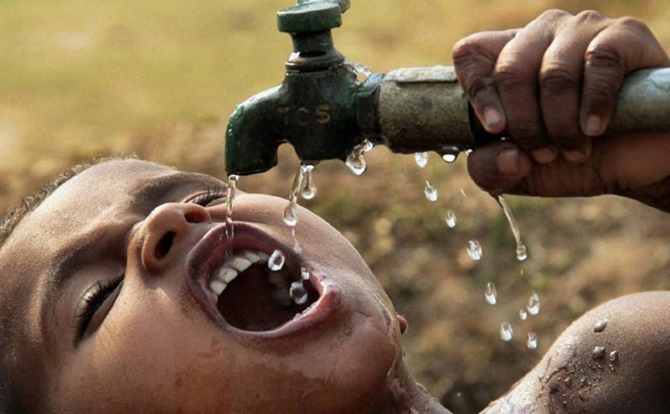If you lack human water, how long will you live?
Lack of human water can only live for a short time, depending on specific conditions.
- How does the lungs work in the human body?
- What happens inside the human body when it is about to drown?
- If stretched all the way, how big are the human organs?
Water is very important to humans, it is one of the most essential nutrients we need. Occupying 65% of body fluids, water is responsible for regulating body temperature, digestion, eliminating waste, helping the brain produce hormones and neurotransmitters.

If water is not supplied from external sources, the body uses water stored in fat cells. Camels can survive for days in the desert without water thanks to this way. But unfortunately we humans cannot store as much water as they can.
After one week of not being provided with water, the body's temperature rises due to perspiration, and saliva and blood pressure decrease due to low blood volume. This means that we can hardly avoid death.

To survive, the amount of body absorbed from food and water must be greater than the amount of water lost through sweat, urination .
On average, if a person lacks water, one can survive for 3 days, but some people can survive for 8 to 10 days. This time depends on the impact of many factors such as temperature, humidity and health of each person.
For athletes, if they exercise heavily in dry conditions, their body will lose water quickly and may die within a few hours.
The longest surviving record that lacked water belonged to a prisoner, he was left in prison for 18 days. In this case, the dehydration of the body is slow due to the absence of sunlight and low temperature.
In fact, if food-eating humans contain water to replace lost water, we can live without drinking water. At that time, our body still has electrolytes and nutrients in aqueous solution to be absorbed.
Poon Lim, a Chinese sailor who was fortunate to survive 133 days on a raft in the ocean when the ship sank in 1942. During that time, he captured and ate fish and birds while drinking the blood of them.